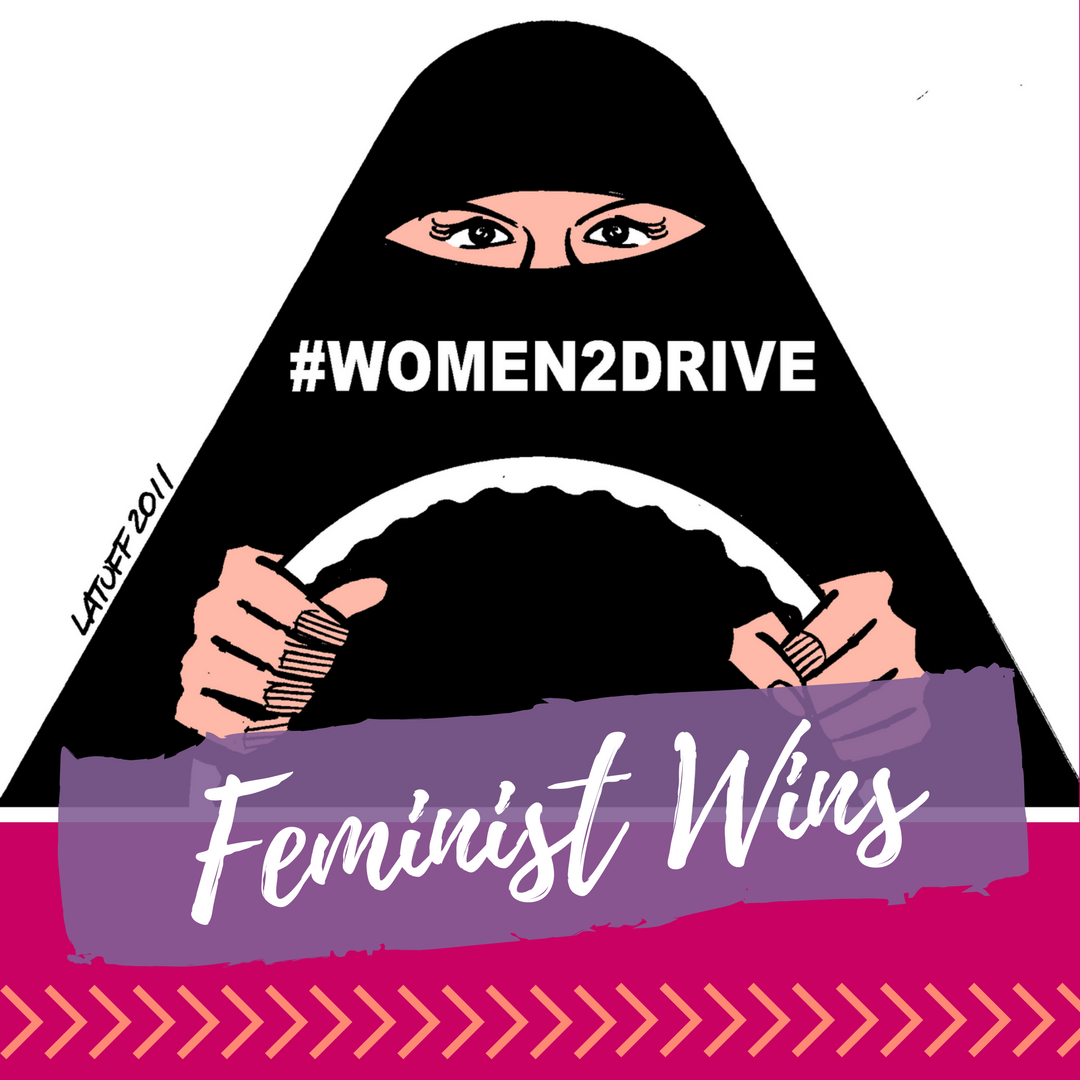Feminists are starting the new year by continuing the hard work to eradicate discrimination worldwide, and this week was both a week of firsts and of revolutionary changes across the globe. These victories are the result of decades of activism, perseverance, and strength – and that deserves some celebration! Join us on Fridays at Feminist Campus as we post a recap of the week’s best feminist successes. Here’s to 2018, and to more feminist victories coming our way.
Oprah becomes the first Black woman to win the Cecil B. DeMille Award
On Sunday night, Golden Globes attendees showed their support for and solidarity with Time’s Up, a new organization created with the mission of ending sexual violence, sexual harassment, and gender-based discrimination in the workplace. During the awards show, Oprah Winfrey became the first Black woman ever to receive the Cecile B. DeMille award, a prestigious award for lifetime achievement, recognizing her outstanding contributions to the entertainment industry. Upon accepting the award, she gave a powerful speech highlighting the U.S.’ history of race and gender-based discrimination and inspired viewers to continue fighting to end these types of discrimination:
Saudi women can now enter sports stadiums
As of today, Saudi women will be allowed to step inside a few Saudi Arabian stadiums for the first time in the country’s history – and just in time for a major rivalry professional soccer game. Until January 11, Saudi women have been forced to watch sports matches on televisions in their homes and would be arrested if caught inside or entering a stadium. In October 2017, the Saudi government announced to lift the stadium ban for women and stated that at least three stadiums will have special sections for female fans. “We have been waiting for a long time and this is a new feeling for everyone,” says Ghada Grrah, a Saudi sports fan who defined her new ability to watch games in the stands as a “wish … coming true.”
Over a dozen same-sex couples make history in Australia
Minutes after midnight on Tuesday this week, over a dozen same-sex couples tied the knot in Australia to celebrate the legalization of same-sex marriage. Australia’s same-sex marriage bill became law on December 9, 2017, allowing couples to marry without applying for special exceptions. Since existing marriage law in Australia requires all couples to provide a month’s notice before they can wed, January 9, 2018 was the first day that Australian same-sex couples could legally marry. “We’re just so excited to be equal like everyone else in Australia,” says Deanne Robeiro, who married her partner one minute past midnight on Tuesday. The bill, introduced by Senator Dean Smith, redefines marriage as “a union of two people,” rather than solely man and woman. The bill was passed after 62% of Australians endorsed legalizing same-sex marriages in a nation-wide government-commissioned poll in November 2017. Australia is the 26th country to legalize same-sex marriage.

Judge blocks Florida’s 24-hour rule on abortion
On Wednesday, a Florida judge permanently blocked Florida’s 24-hour abortion waiting period, which the Florida Supreme Court temporarily blocked last year. Judge Terry Lewis ruled the 24-hour waiting period unconstitutional, claiming that it is an invasion of personal privacy rights. The 24-hour abortion waiting period was a state law passed in 2015 requiring those seeking abortions to wait a 24-hour period after seeing an abortion provider before being legally allowed to obtain an abortion. Legislators passed the law by arguing that the 24-hour waiting period would give women time to “contemplate their decisions.” Nancy Abudu, the Legal Director of ACLU of Florida said, “Today’s ruling is a win for Florida women. The forced delay law was an insult to women.”
Uber and Careem recruit their first ever women drivers in Saudi Arabia
Uber and Careem recruited their first women drivers in Saudi Arabia after the King declared in September 2017 that he would lift the ban on women driving cars by June 2018. Uber and Careem, a Dubai-based transportation network, intend to hire over 10,000 female drivers once the ban is lifted. Both companies are currently training women who have applied to ensure that they meet all qualifications necessary. Currently, over 100 women are already qualified to drive for the ride-hailing services.


